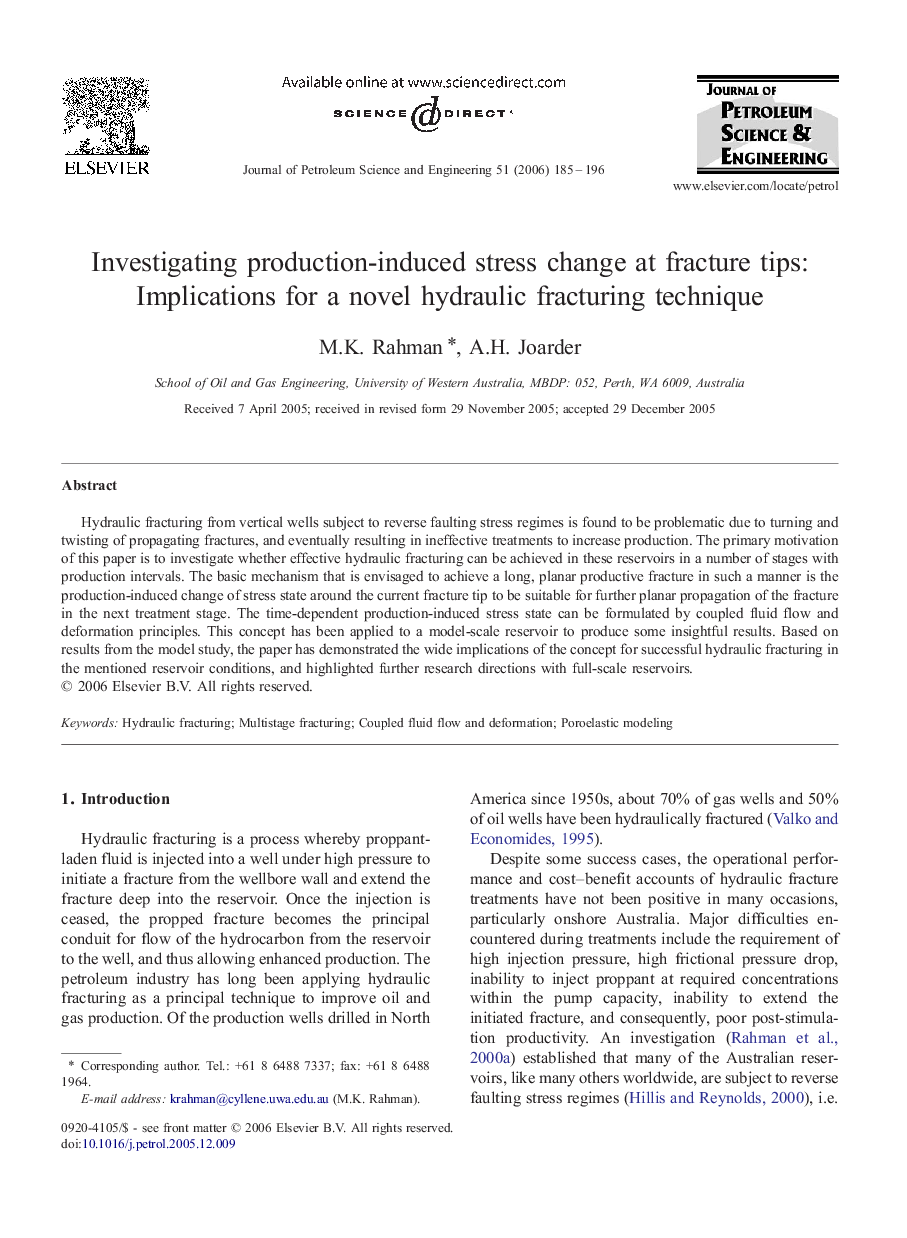| Article ID | Journal | Published Year | Pages | File Type |
|---|---|---|---|---|
| 1756567 | Journal of Petroleum Science and Engineering | 2006 | 12 Pages |
Hydraulic fracturing from vertical wells subject to reverse faulting stress regimes is found to be problematic due to turning and twisting of propagating fractures, and eventually resulting in ineffective treatments to increase production. The primary motivation of this paper is to investigate whether effective hydraulic fracturing can be achieved in these reservoirs in a number of stages with production intervals. The basic mechanism that is envisaged to achieve a long, planar productive fracture in such a manner is the production-induced change of stress state around the current fracture tip to be suitable for further planar propagation of the fracture in the next treatment stage. The time-dependent production-induced stress state can be formulated by coupled fluid flow and deformation principles. This concept has been applied to a model-scale reservoir to produce some insightful results. Based on results from the model study, the paper has demonstrated the wide implications of the concept for successful hydraulic fracturing in the mentioned reservoir conditions, and highlighted further research directions with full-scale reservoirs.
